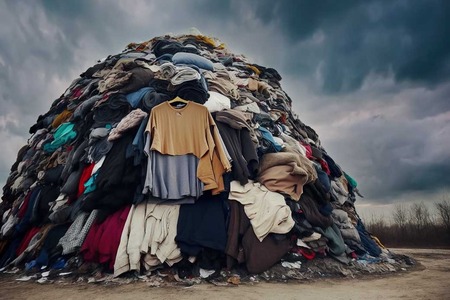
Directorate of Textiles to control all major activities of RMG sector
YarnsandFibers News Bureau 2015-11-07 14:00:00 – DhakaBangladeshi readymade garment (RMG) sector the main export earner of the country to streamline, the Directorate of Textiles is going to be vested with the authority to regulate the RMG sector under a new law --- The Textile Industries Establishment Act 2015-would take effect early next year. The new draft law proposed making the Directorate of Textiles under the Ministry of Textiles and Jute as an effective "sponsoring authority" for the apparel industry. It means the directorate would have the authority to control all major activities, including registration, permission for import, utilisation declaration (UD) and even import of capital machinery.
According to the legal provisions, none can establish and run textile and garment factories without registration from the Directorate of Textiles. If anyone violates the law, there is a provision for one-year imprisonment or Tk 100,000 penalty.
After enactment of the law, all the new establishments (textiles and garments) would have to register under the act and all the existing factories would have to come under registration with the directorate within six months.
As per the proposed law, the directorate will enjoy the authority to suspend or cancel registration of any industry if it finds proper reason to do so after carrying out investigation.
The government has already sent the draft of the law to the stakeholders for their comments and held a number of meetings in this regard. State Minister for Textiles and Jute Mirza Azam said that they are working hard to formulate the law and hopeful about enacting the law within this year.
Officials concerned, however, hinted that it might take some more time as they are yet to sit with major stakeholders, including Bangladesh Garment Manufacturers and Exporters Association (BGMEA) and Bangladesh Knitwear Manufacturers and Exporters Association (BKMEA), two apex trade bodies of the export-oriented woven and knitwear industries respectively.
Most of the stakeholders, including BGMEA and BKMEA, have already opposed the move as they termed some of the provisions of the proposed act detrimental to the overall growth of the industry.
BKMEA demanded the scrapping of the provision of recommendation to the customs authorities regarding release of imported capital machinery and indemnity bond.
The Ministry of Textiles and Jute will soon convene an inter-ministerial meeting to discuss the issues elaborately with stakeholders to settle the differences, defuse confusions and finalise the draft law.
The draft law will be sent to the cabinet committee hopefully early next month for their approval before going to the cabinet. Officials, however, expected the new law by early next year.
After enactment of the law, officers designated from the directorate could inspect factories anytime and the factories would be bound to provide documents as per requirement.
According to the draft law, the textile directorate will establish a database of the industries based on the information provided by the factories. The industries will not be able to enjoy any government facilities if found reluctant to take registration. Furthermore, according to the proposed law, all the textile industries excepting silk and handloom ones, have to be registered with the directorate.
According to the directorate, there are more than 6,000 RMG factories and about 1500 textile mills, many of which are being operated without proper monitoring.
Mohammad Ismail, director of the Directorate of Textiles said that to have a legal ground to control textile industries the government has taken the initiative to formulate a law.
As per the proposed law, it will play the role of coordinator and maintain coordination with the National Board of Revenue, the Export Promotion Bureau, the Registrar of Joint Stock Companies and Firms, the Fire Service and Fire Defence, the Directorate of Labour, the Ministry of Power, the Ministry of Water Resources and other stakeholders. It will also maintain coordination with the Technical Education Board, the University Grants Commission and universities in fixing curriculum related with textile industries.
The textile industries had been under control of the Department of Textiles until 1993, when the government transferred the functions of sponsoring authority to the Board of Investment (BoI). But the government again on May 26, 2013 handed over the authority of textile industries to the textile directorate. Now, the ministry is trying to formulate a law for assisting the directorate in ensuring smooth run of textile industries.
Market Intelligence
Ask for free sample Report

experience
Customer Base
dedicated team
Countries Served Worldwide









